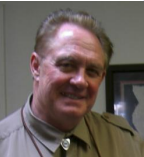Avoiding License Renewal Gremlins

[July 2019] The broadcast Renewal Season started earlier this year, with license renewals for Radio and TV stations being spread over then mext three years. While the process is a bit simpler this time around, there are definitely some areas that need close attention to avoid problems. Ken Benner points out one such area.
It almost seems appropriate: On April First’s “Fools Day,” broadcast licensees found themselves faced with their eight year cycle with the dreaded FCC Licensee Renewal Form 303-S.
Although somewhat updated, this form provided the potential for thousands of dollars in fines for some slight inadvertent missteps.
In a recent message, I was told such fines start at $10,000 and can be adjusted upwards should a competitor, disgruntled employee, or unhappy listener or viewer find something in the licensees’ on-line Public File that could be subject to a substantial fine..
The Question Trap
Please carefully review question #4 on 303-S. This one asks for you to confess any sins committed during your current license period.
Some might worry about failing to confess such things as missing an EAS test from two years ago, the day your talk show host failed to block a naughty word from a caller, or your failure to include in your “Letters From The Public” an item that could have been mistakenly determined as not “legitimate.”
In any event, relax! – at least a bit. The question #4 actually is only asking about violations for which you were notified by the FCC, and had to spend time and possibly legal expenses to resolve. It does not include mistakes found during an ABIP inspection, nor those you yourself discovered upon self-inspection.
The Public Information File
Now we get to the one biggest headache I have had to deal with while conducting Alter-native Inspections have been the Public Infor-mation Files: what goes in, when, and what comes out.
A question I have long asked is: Why do we have Public Files and worse yet, why are they required to be readily available on the Internet. For whom do they really serve?. Who could possibly profit from these and many other illpurposed, grossly over-complicated regulations?
The answer is that Public Information Files are part of the FCC Rules and Regulations, so it is required. As directed by Congress, stations must make certain items available for inspection by the FCC and the Public. The only way to reduce/ close the Public File requirements is to get Congress to do so. In other words, do not hold your breath.
Who is Looking?
In the not too distant past, when such files were available only with a visit to the station, I found hundreds of stations never had a single request from the Public for file access. Of those who actually did request access, 95% of such requests were from politicians wanting to observe what their opponents were spending in ads for their campaigns.
Today, with the Public Information Files now required to be online on the FCC site, it is much easier for persons or the FCC to look and see what is posted. The FCC has already made it known that during the renewal season they plan to check station sites to ensure compliance with the rules – and added on time!.
Or, for example, maybe you have found yourself the target of an effort to discredit you or your station under a phony letterhead implying it came from the Mayor, The President, a Congressperson or other prominent individual – this is something that we have observed on occasion during inspections.
Again, there is no need for anxiety, if you just follow the Rules.
What You Need to Do
In the over 24 years, my wife and I have conducted inspections under the Alternative Broadcast Inspections Program (ABIP) our greatest time has been spent addressing Public File compliance. In fact, during our first ten years, over 80% of the stations had no semblance of what was then required in these files.
In each case, we helped stations to prepare complete Public Information Files based upon the current FCC Self-Inspection Checklists. Each of the 16 file folders were tabbed for its content, and a copy of the required contents (from the Rules) was placed under clear cellophane tape on the front of each folder.
Never did we charge a station for this help.(One former “mock” inspector charged over $150 to do this simple one-hour task. Just one example of the numerous exploitation opportunities involved with the ABIP inspection program.)
Using the admittedly, somewhat out of date, FCC’s Self-Inspection Checklists are still the best means to assure complete compliance. In that regard to be fully up-to-date, please pull up FCC Rules Part 73.3526 (and 75.3527 for an NCEFM station) as revised Oct. 1, 2018.
IF you do, you will find it really is not rocket science – but it will take a few minutes to research and implement the massive amount of long-winded requirements that result in the shoveling a lot of money to Washington in fines, fees, forfeitures, and legal expenses, especially at license renewal time.
Do Not Worry Overmuch
With just a bit of attention, the Form 303-S answers and Public File requirements can be easily handled, and your renewal will not be held up nor fines imposed.
Perhaps it is time all of us in the industry work together to promote Public Information File clarification, simplification, and transparency of the heavy paperwork burdens placed on American Broadcasting.
– – –
Ken Benner, CBRE, NCE, has served as an inspector in the FCC’s Alternate Broadcast Inspection for the past 24 years, as well as the official pancake turned at breakfast meetings Contact Ken at: bennerassociates@me.com
